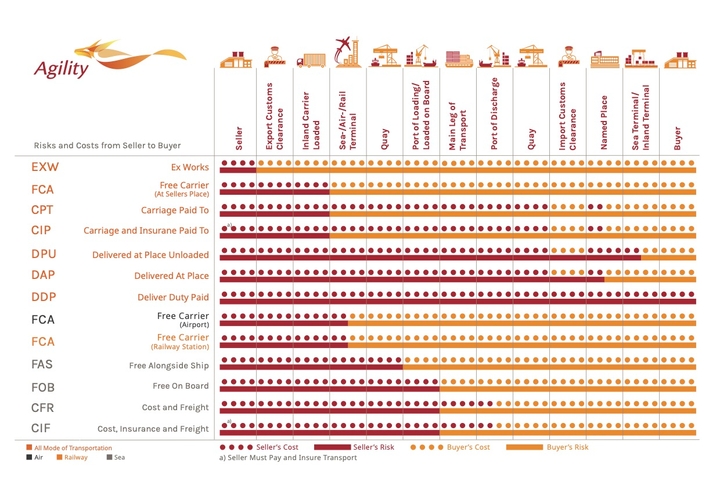Your Brief Guide to the New ICC Incoterms 2020

If your business is engaged in the shipping of commercial goods internationally, working knowledge of the International Chamber of Commerce's Incoterms is essential. As the ICC has recently released its new Incoterms 2020, there’s no better time than the present to review them.
A new copy of the Incoterms 2020 guide will cost you around $40 to $50 if you purchase it from the ICC, or you can buy a pocket guide from the ICC website, for about $15.
Alternatively, you can get the details of the most notable changes introduced in the ICC's update for free—right here on this page.
What are Incoterms?
The ICC developed its Incoterms as a tool to aid international trade. They are a set of standard, universally applicable rules, setting out the roles and responsibilities of the buyer and the seller in an international sales and shipping transaction.
Notable Changes to the Incoterms in 2020
In the main, Incoterms 2020 have not introduced many fundamental changes, as compared to the previous set of incoterms released in 2010. However, there are five noteworthy changes with which, as a shipper, you should become familiar. We've outlined them below so that you can update yourself in a matter of moments.
1. FCA and the On-Board Bill of Lading
Under the FCA (free carrier) Incoterm, the parties in an international sale may now agree that the buyer should instruct a carrier to provide a bill of lading with the "on-board" notation to the seller.
This change addresses an issue in the previous FCA incoterm, whereby international carriers would sometimes refuse to issue an on-board bill of lading to a seller.
2. DAT is Now DPU
The Incoterm that was formally known as DAT (delivered at terminal), from now on, becomes DPU (delivered at place unloaded). This Incoterm is the only one tasking the seller with unloading the goods in an international shipping transaction.
The change of name reflects the fact that the goods are not necessarily unloaded at a terminal. Unloading can instead take place at a location other than a terminal, if agreed between the buyer and seller.
3. CIP Increase in Insurance Obligation
Under the CIP (carriage and insurance paid to) Incoterm, the level of insurance cover that the seller is obliged to secure has been raised. In the old version of the Incoterms, the seller was responsible for obtaining the minimum coverage under Clause C of the Institute of Cargo Clauses.
Under Incoterms 2020, the seller must now get cover to the value of 110% of the goods' value, as per Clause A of the Institute of Cargo Clauses.
Note that there is no change in insurance requirements for the CIF (cost, insurance and freight) Incoterm. That's because CIF is often used in bulk commodity sales, whereas CIP frequently applies to manufactured-goods trades.
4. Greater Emphasis on Security
The ICC has made security requirements more prominent across all Incoterms as part of the new release. That’s because these requirements have increased in the decade since the introduction of Incoterms 2010, and failure to fulfill them can increase costs and the risk of shipping delays.
5. Clarification of Cost Allocation
In recent years, disputes around the allocation of costs, particularly those incurred in or around ports and places of delivery, have increased. As a result of this, Incoterms 2020 includes more explicit instructions for allocating costs to the buyer and the seller in an international trade transaction.
Incoterms 2020: Quick Reference Chart
The chart below provides a quick breakdown of how each Incoterm apportions costs to the buyer and seller. It also shows the modes of transportation to which each term applies.

If you have questions about any of the new 2020 Incoterms when booking your air or ocean freight shipment with Shipa Freight, please contact our customer support team. We’ll be pleased to assist you.


